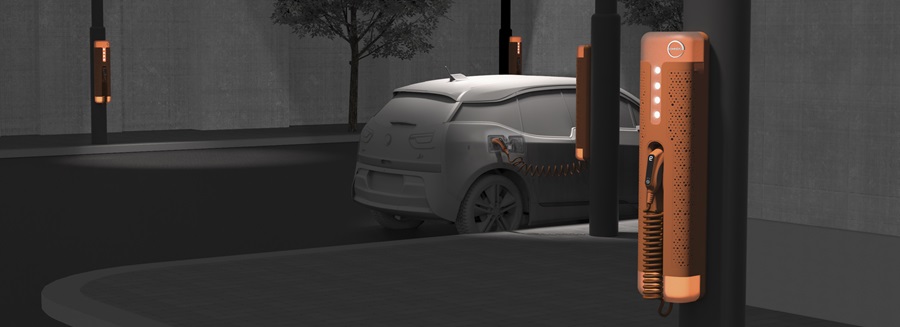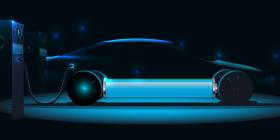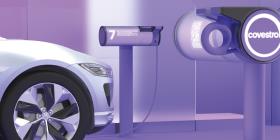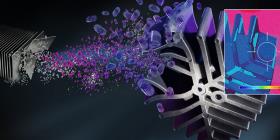Wallbox demonstrator: Experience our EV charging material solutions firsthand
Experience the performance of our polycarbonate EV charging material solutions with our interactive wallbox demonstrator. This hands-on showcase demonstrates how our PC resins deliver exceptional impact resistance, UL94 flame protection, and design flexibility for modern charging infrastructure. Touch, feel, and understand why leading wallbox manufacturers choose our materials for their most demanding applications.
Our comprehensive design guide helps developers avoid common pitfalls in wallbox development, from material selection to processing parameters. By following proven best practices, engineering teams can reduce development cycles, minimize costly redesigns, and accelerate time to market. The guide addresses typical challenges like wall thickness optimization, gate placement, and thermal management - enabling faster, more efficient product development with our EV charging material solutions.
Home charging solutions: Safe and reliable EV charging material for every garage
Home wallboxes require materials that combines safety with everyday reliability. Our polycarbonate resins provide UL94 V0/5VA flame retardancy and exceptional impact resistance (to meet IK10 requirements) for residential charging applications. With excellent electrical insulation properties and resistance to temperature fluctuations from -30°C to 80°C, our PC materials ensure safe, long-lasting performance in garage environments while meeting global product safety standards.
Public charging stations: Weatherproof and vandalism-resistant infrastructure
Polycarbonate (PC) resins are inherently robust, uniting excellent dimensional stability, good impact resistance and UL94 flame retardancy, along with electrical insulation properties that can be tailored to meet product safety standards.
High resistance to weathering, corrosion and rust make polycarbonate resins a good material for outdoor charging installations, withstanding storage temperatures between -30°C and 80°C. Compared to semi-crystalline materials, PC housings offer lower water absorption and a reduced level (4-6/1000) of post-tooling shrinkage. Moisture resistance (UL746C, f1 listing, IP degree) is combined with impact strength that remains high even at low temperatures, as well as UV resistance. Polycarbonate casings, front covers and decorative parts offer UL94 flame protection (V0 or 5VA).
We collaborate with leading EV charging station players and support our customers with our broad know-how in materials, technologies and market requirements. Market leaders have already been relying on our material solutions for many years.
Outdoors or indoors: design flexibility for corporate or private applications
The aesthetic possibilities offered by polycarbonate resins are infinite. They can be engineered for complete transparency, or to match any opaque or translucent color. Eye-catching molded shapes can be combined with metals and other plastics to suit any corporate design or household consumer preferences, as well as integrating functions. PC surface finishes can range from textured to matte and high gloss.
EV charging station solutions: cost-effective, lightweight and sustainable
Polycarbonates give EV charging station operators a cost effective and scalable path for growth. Easily mass-produced components provide the functionality needed for an electrical enclosure, along with toughness and styling that can underscore your brand identity and maximize your appeal to electric car drivers.
Lightweight PC resins meet EV charger housing requirements with just one-seventh the density of steel and half the weight of aluminum when following the same design form. Impact performance is significantly better than PMMA clear plastic acrylic and standard polystyrene.
These high-performance properties come in a polycarbonate solution that shows high potential to be recycled at the end of its useful life. Our Makrolon® and Bayblend® polycarbonate grades partly made from post-industrial recycled (PIR) content, post-consumer recycled (PCR) content and certified mass-balanced renewable feedstock offer opportunities for a lower carbon footprint while helping to close the carbon cycle and conserve fossil resources.
Together with our partners, we are driving innovations for the EV charging infrastructure of tomorrow.
Polycarbonate resins from Covestro allow customers to realize individual and sustainable designs for EV charging stations while meeting global market requirements. Our materials meet electrical insulation standards in a strong, lightweight package that is also weatherproof, making it ideal for both robust outdoor electric vehicle charging solutions and stylish wall boxes.
Key Benefits
- Safer and more durable: Polycarbonates couple electrical insulation with high dimensional stability.
- Vandalism resistant: Charger casings and parts are tough, impact safe and have UL94 flame protection.
- Weatherproof: PC resins are resistant to moisture, rust, UV, and wide temperature changes.
- Design freedom: Your EV charging brand enjoys a wide range of forms, colors, and textures.
- Cost-effective: Tough and functional EV charging station components can be mass-produced easily.
- Lightweight: PC housings have 1/7 the density of steel and half the weight of aluminum.
- Sustainable: Polycarbonate is a recyclable material, grades with recycled polycarbonate have been developed and mass balance certification promotes the use of renewable materials for polycarbonate applications.
Downloads
-
IK10 Insights
-
Covestro EVSE Brochure 2022
-
WP Makrolon - The chemical resistance
-
Addressing Molded-In Stresses and Part Durability
-
Strategic Radii in Structural Part Design
-
Makrolon stress crack test















